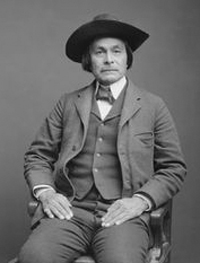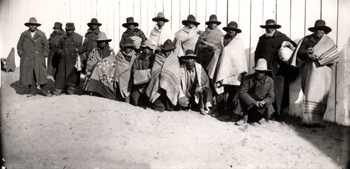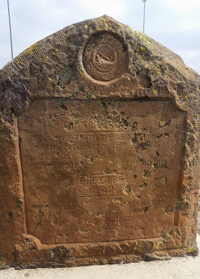| The Crazy Snake Festival is going to be held Saturday. It is going to be an evening of fun, music and entertainment but, where did the name come from? For many, Crazy Snake is associated with what was termed by some newspapers at the start of the 20th Century as a rebellion or uprising. Too many people, then and now, fail to look beyond that and see the real man who was known as Chitto Harjo (Crazy Snake). | |
| In Creek language, Harjo is a name for one who is brave beyond discretion. Chitto is derived from the Creek word for snake. Today, most people pronounce his name Cheeto Harjo. The correct pronunciation is Chit-to Ha-cho He was born in 1846, some 20 years after the Muscogee (Creek) removal from their traditional homeland in what is now the states of Alabama, Georgia, Florida and South Carolina. When they came to Oklahoma, called Indian Territory at that time, they were given lands for farms and plantations. The tribal towns within the Creek Nation originally governed themselves and their lands. |  Chitto Harjo |
| That all changed after the American Civil War when the Muscogee (Creek) Nation established a constitution, principal and second chiefs, judiciary and legislature. Change further happened when the Dawes Commission started the process of doing away with the Creek government and started allotting land to the various tribal members. That's when Chitto came to prominence. He was born in 1846 in Arbeka, one of the towns on the Deep Fork River. Harjo had already become known to many throughout the area during the early 1880s that saw a series of battles between tribal factions. | |
 Crazy Snake followers sent to prison. | Accounts of the time said he was a strong and charismatic man who was able to speak eloquently when called on. That need came in 1900 when he and three other delegates traveled to Washington, D.C. in an effort to rescind the allotment of lands and go back to the 1832 treaty agreement. |
| Those opposing the allotment plan grew in numbers and eventually became called "Snakes" after Harjo who spoke out often and loudly against the plan. That effort got him arrested and sent to the Leavenworth (Kans.) federal penitentiary for two years. He returned then took his opposition directly to the U.S. Senate in 1906. Speaking before a select Senate Committee in Tulsa, he openly challenged what he called the ambiguous legal status of Indians. Part of his address to the senators pointed out the treaty was to last, "as long as the sun rises… as long as the waters run… as long as the grass grows." His eloquent and moving arguments fell on deaf ears and, a year later, Oklahoma became a state. | |
| Chitto was 62 when another rebellion happened, this one resulting in a bullet wound that would remain with him for several more years. Called the smoked meat rebellion, it happened in 1908 when a smokehouse owned by white farmers was raided. Harjo's followers were blamed for the damage and a posse went looking for the culprits. There was a shootout at Harjo's home just off Tiger Mountain near the Deep Fork River with several killed and wounded on both sides. One of them was Chitto Harjo. That's where the historical fact grays out. In one account, Harjo traveled to McCurtan County with a bullet wound in his hip. He was supposed to have died there and was buried near Smithville. |  Monument honoring Chitto Harjo at Nichols Park. |
| Another account has the eloquent orator of the Muscogee nation escaping later to die of his wounds while still within the boundaries of his people's land. Which even story is fact, the people of the time lost a dedicated and determined spokesman. Henryetta gained a part of old west history and honors this true native hero. | |














